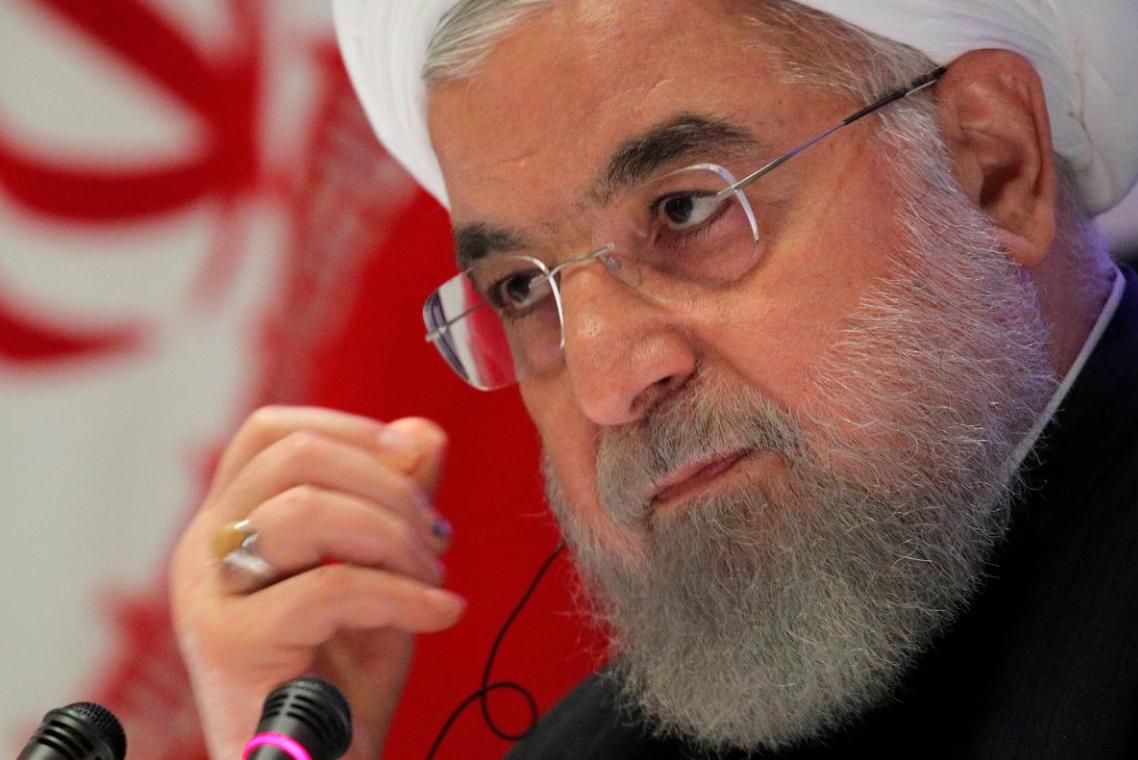Iranian fuel starts arriving in Venezuelan waters despite U.S. warning

The first of five Iranian tankers carrying fuel for gasoline-starved Venezuela entered the South American country’s exclusive economic zone on Saturday, despite a U.S. official’s warning that Washington was considering a response to the shipment, according to Reuters.
The tanker, named Fortune, reached the country’s waters at around 7:40 p.m. local time (1140 GMT) after passing north of the neighboring dual-island Caribbean nation of Trinidad and Tobago, according to vessel tracking data from Refinitiv Eikon.
“The ships from the fraternal Islamic Republic of Iran are now in our exclusive economic zone,” tweeted Tareck El Aissami, Venezuela’s economy vice president and recently named oil minister.
Venezuelan state television showed images of a navy ship and aircraft preparing to meet it. The defense minister had pledged that the military would escort the tankers once they reached Venezuela’s Exclusive Economic Zone (EEZ) due to what authorities described as threats from the United States.
The tanker flotilla is carrying a total of 1.53 million barrels of gasoline and alkylate to Venezuela, according to both governments, sources and calculations by TankerTrackers.com.
The desperately needed shipments have caused a diplomatic standoff between the United States and Iran and Venezuela, which are under U.S. sanctions. Gasoline is scarce in Venezuela due to a near-complete breakdown of the OPEC nation’s 1.3 million barrel-per-day refining network.
Washington is considering measures in response, a senior U.S. official said without elaborating.
The United States recently beefed up its naval presence in the Caribbean for what it called an expanded antidrug operation. A Pentagon spokesman said on Thursday he was unaware of any operations related to the Iranian cargoes.
The shipment has drawn condemnation from Venezuela’s opposition, which is concerned about growing ties between Iran and socialist President Nicolas Maduro, who has overseen a six-year economic crisis. The shipments are bringing enough fuel for just a month of consumption at current rates in the nation, once a prominent fuel exporter.
“(The ruling party) is trying to turn an embarrassment into an epic victory,” said Oscar Ronderos, a lawmaker on the opposition-controlled National Assembly’s energy commission.
Earlier on Saturday, Iranian President Hassan Rouhani warned of retaliation if Washington caused problems for tankers carrying Iranian fuel to Venezuela, the semi-official news agency Mehr reported.
“If our tankers in the Caribbean or anywhere in the world face trouble caused by the Americans, they (the U.S.) will also be in trouble,” Rouhani said in a telephone conversation with Qatar’s Emir, Mehr reported.
The two nations have previously helped each other in the face of U.S. sanctions. In 2010-2011, state-run oil company PDVSA [PDVSA.UL] sent fuel to Iran, which was under sanctions aimed at stifling its nuclear weapons program.
 Latest news
Latest news Latest news
Latest newsGreece Plans to Exclude Turkiye from Future Defense Contracts
20.Feb.2026
U.S.-Based Mars Launches Major Investment Project in Kazakhstan
20.Feb.2026
Parliamentary Elections 2026 in Armenia as a Geopolitical Referendum
20.Feb.2026
Russia and Ukraine Fail to Reach Agreement in Geneva
19.Feb.2026
The South Caucasus in U.S. Foreign Policy: Implications of High-Level Visits for Russian and Chinese Regional Aspirations
18.Feb.2026
Ukraine Imposes Personal Sanctions on Belarusian President Alexander Lukashenko
18.Feb.2026
72% Against the Authorities: Economic Dissatisfaction Hits Record Levels in Turkiye
17.Feb.2026
Bulgaria Strengthens Defense: First American Stryker Vehicles Delivered
17.Feb.2026
Moscow Criticizes Plans to Build a U.S.-Backed Nuclear Power Plant in Armenia
16.Feb.2026
Washington expects Tbilisi to strengthen ties amid regional changes
15.Feb.2026

 28 Feb 2026
28 Feb 2026









